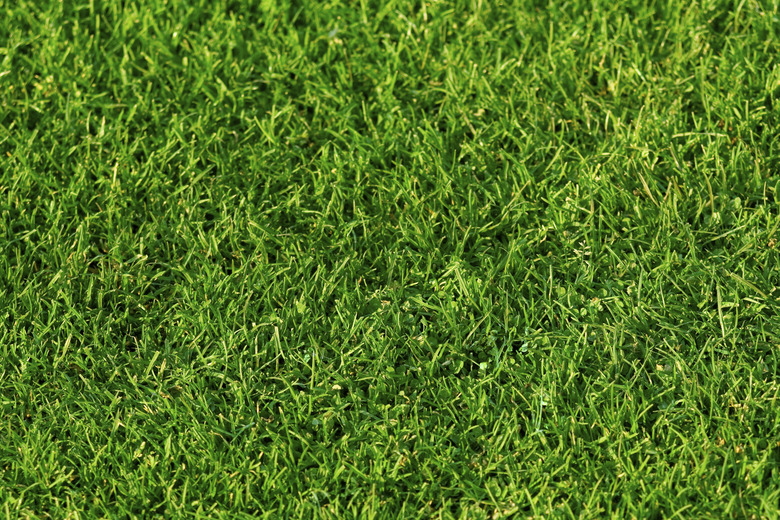Does Ammonia Kill Grass?
Ammonia provides a readily available source of nitrogen, a necessary nutrient for grasses to develop a healthy green color and produce new growth. Not all types of ammonia are created equal. Using the wrong type or too much of the right type can burn and kill your grass. Understanding the different ammonia types and how they affect your grass helps you determine which ammonia-based fertilizer best fits your lawn's needs.
Household Ammonia
Homemade fertilizers and lawn tonic recipes that contain ammonium hydroxide, which is common household ammonia, can kill your grass. Chemical concentrations vary depending on the brand of household ammonia, which makes over application and chemical burns to the lawn more likely. Although grass and other plants can use the nitrogen available in some ammonium formulas, ammonium hydroxide is a caustic agent meant for cleaning so it's more likely to burn or kill lawn grass and other plants. When used in small enough quantities so as not to harm the lawn, such as 1/2 cup per 250 square feet, it doesn't supply enough usable nitrogen to provide any health benefits to the grass.
Ammonium Nitrate
Ammonium nitrate provides the source of nitrogen in many standard fertilizer blends, especially those meant for fall and winter application. It's best suited for established, healthy grass because the ammonia releases the nitrogen quickly, which can burn or kill tender new grass seedlings, or grass suffering from drought or other stresses. Ammonium nitrate fertilizers have an nitrogen-phosphorus-potassium ratio of 33-0-0, which requires an application of 3 pounds of ammonium nitrate for every 1,000 square feet to supply 1 pound of actual nitrogen to your lawn.
Ammonium Phosphate Sulfate
Gentler sources of nitrogen provide a better option for tender new grasses, those recovering from stress or a starter treatment before planting new grass. Ammonium phosphate sulfate has an NPK ratio of 16-20-0, so it contains less nitrogen than ammonium nitrate and it also supplies some phosphorus. Six pounds of ammonium phosphate sulfate fertilizer provides 1 pound of nitrogen to every 1,000 square feet of lawn. This type of ammonia is the least likely to burn or kill grass.
Ammonium Sulfate
Ammonium sulfate fertilizer isn't typically used in grass fertilizers because it causes acidic conditions. It's primarily used to lower the pH level for acid-loving plants. Most lawn grass grows best in a neutral pH between 6.0 and 7.0. In soil with highly alkaline soil with a pH above 7.1, ammonium sulfate can help lower the pH to the preferred neutral zone. Ammonium sulfate has an NPK ratio of 21-0-0, so 5 pounds are required to supply 1 pound of actual nitrogen to 1,000 square feet of grass. Over application will burn and kill the grass.
Application Safety
All ammonia-based nitrogen sources can cause skin irritation, chemical burns, and damage to the eyes and throat if inhaled. Wearing heavy gloves, protecting exposed skin and wearing eye protection minimizes the hazards during application. Mix and handle fertilizers in a well-ventilated area to avoid fumes. Keep children and pets off the grass after fertilizer applications for at least 24 hours.
